SUMMARY
This is AI generated summarization, which may have errors. For context, always refer to the full article.
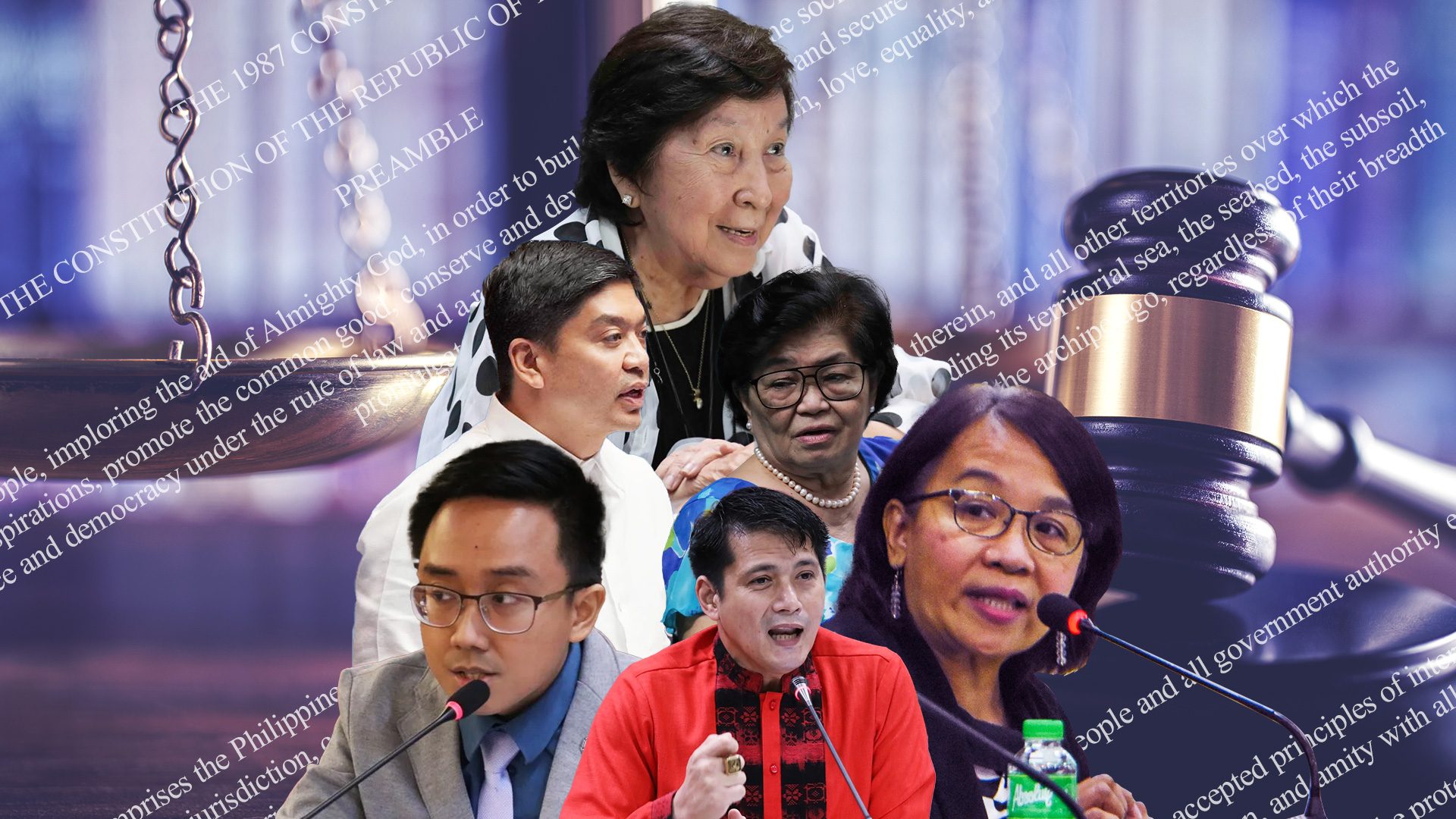
MANILA, Philippines – Despite President Ferdinand Marcos Jr.’s pronouncement that charter change is not a priority for his administration, the House committee on constitutional amendments approved last February 20 a resolution calling for a constitutional convention to amend or revise the 1987 Philippine Constitution.
Previous attempts at charter change have often raised suspicion among the Filipino public who worry that politicians would only amend the Constitution to prolong their stay in power. (READ: What you need to know about Charter Change)
Constitutional amendments chairman Rufus Rodriguez appeared determined to assert the lower chamber’s independence in pushing for charter change and holding further dialogues with concerned sectors and groups to make it happen.
Lawmakers and experts have also weighed in on the merits and pitfalls of charter change.
Those pushing to amend the 1987 Constitution often cite the need to tinker with specific economic provisions to generate more opportunities for Filipinos.
On the other hand, those questioning the timing and purpose of charter change argue that it is not a panacea for the country’s economic and social woes. (READ: Past Charter Change attempts and why they failed)
Arguments for Charter Change
●Senator Robin Padilla
Although he was part of the Marcos-Duterte tandem’s UniTeam senatorial ticket in the 2022 national elections, Senator Robin Padilla did not hide his disappointment in President Marcos’ apparent lack of enthusiasm for charter change.
Padilla, who sits as chairman of the Senate committee on constitutional amendments, had vowed during the campaign that he would use his platform to promote federalism and charter change.
Both issues were key components of former president Rodrigo Duterte’s platform which he failed to achieve.
In response to President Marcos’ statement on charter change, Padilla emphasized last February 13 the importance of amending “restrictive” economic provisions in the 1987 Constitution so that pledges by foreign investors could materialize as actual investments.
“Hindi pa po nagiging makatotohanan ang sinasabi nilang pagpasok ng dayuhang mamumuhunan, kung kaya, mula noon hanggang ngayon, karamihan po ng mga pledges ng mga foreign investors sa mga foreign trips ng ating mga mahal na Pangulo ay mananatiling pangako lamang,” Padilla said in a statement.
(What they have been referring to as the entry of foreign investors [into the Philippines] has not yet materialized. From then until now, most of the pledges of foreign investors to our dear presidents during foreign trips remain mere promises.)
With or without the support of the president or his colleagues in the Senate, Padilla remained unfazed. He said in a DWIZ-AM radio interview last February 19, that he would rather resign than set aside charter change.
“Tayo po ay nandiyan, tayo po ay nangampanya, tayo po ay pinaniwalaan ng taumbayan na ang atin pong adbokasiya ay patungkol po sa konstitusyon. At iyan po ang ating sinusulong na economic reform,” Padilla remarked.
(We were there, we campaigned, and the people believed in our advocacy regarding the constitution. And that is the economic reform we are pushing.)
●Representative Lray Villafuerte
Two weeks before President Marcos’ statement on charter change sparked discussions on social media, Camarines Sur 2nd District Representative Lray Villafuerte urged the Philippine government to spend between P8 billion and P10 billion for charter change as it would be “worth it.”
In reports by Bicol News and Bicol Overview, Villafuerte said that lifting the restrictions on foreign ownership and investments on all sectors would make the country more welcoming to foreign capital that can generate more jobs.
In an ANC interview on Tuesday, February 14, Villafuerte also linked the “instability” of the country’s investment climate to the frequency of elections.
“I think one of the causes of corruption is too many elections… if there are elections every three years, ang gulo eh,” Villafuerte said.
However, Villafuerte is not yet confident about charter change’s prospects in the Senate.
“Palagay ko hindi papayag ang Senado [sa Constituent Assembly] because balik na naman tayo sa issue of voting jointly or separately,” Villafuerte remarked.
●Clarita Carlos
Ex-National Security Adviser (NSA) Clarita Carlos echoed Padilla and Villafuerte’s sentiments on the negative impact of the 1987 Constitution’s “restrictive” economic provisions on the country’s investment climate.
“[W]e put to the inflow of foreign direct investment, then that will generate a lot of things downstream and upstream,” Carlos said in the hearing of the House committee on constitutional amendments last February 6.
While Carlos admitted that going for a constitutional convention would be more costly for the government, it would help to build trust in the process among the Filipino public.
Arguments against Charter Change
●Winnie Monsod
In her blog “As I See It,” Economist Winnie Monsod delivered a scathing critique on beliefs that amending the 1987 Constitution’s limits on foreign ownership in several economic sectors would guarantee a flood of foreign direct investment (FDI) in the Philippines.
Monsod observed that previous lawmakers who have pushed for charter change were influenced by inaccuracies in the arguments of economist Gerardo Sicat.
She concluded that there was “no empirical evidence to support the claims that the economic provisions of the 1987 Constitution (and earlier ones) were the source of our economic problems.”
Monsod argued that sound national economic policies, substantial infrastructure investment, and the provision of further incentives for investors are crucial in encouraging FDI to flow into the country. Monsod also blamed corruption and an inefficient bureaucracy for the Philippines’ poor investment climate.
For her, such matters seemed to be better addressed by adopting good governance practices as opposed to amending the constitution.
●University of the Philippines Diliman (UPD) Department of Political Science
In a comprehensive position paper published on January 19, the UPD Department of Political Science made it clear that charter change is not a panacea to the country’s economic and social woes.
Instead of amending or revising the 1987 Constitution, the department advocated a “mix of legislation and policy interventions” that involved existing laws, governmental system reform, and transparency, as well as, the promotion of accountability.
While the department argued that a constitutional convention would be more appropriate should a strong public demand for charter change emerge, it insisted that the convention be more representative of the national population and not include members of political dynasties.
●Opposition in Congress
Despite being vastly outnumbered by the Marcos administration’s allies in both houses of Congress, members of the opposition did not hesitate to express their reservations on the renewed push for charter change.
In a statement published last February 15, Kabataan party-list Representative Raoul Manuel questioned the claims of House leadership of a “true consensus” for charter change.
“We have yet to hear statements or pronouncements from the Senate regarding Cha-Cha,” Manuel pointed out.
House Deputy Minority Leader and ACT Teachers Representative France Castro also urged Congress to focus on addressing inflation, unemployment, and other more immediate concerns.
In concurrence, Senator Risa Hontiveros emphasized on a Facebook post that attracting foreign investments to the country is a matter that primarily involved the promotion of good governance, legal predictability, and ease of doing business – not charter change. – Enzo de Borja/Rappler.com
Enzo De Borja is a 4th year Political Science Major at the University of the Philippines-Diliman, volunteering under Rappler’s Research unit.
Add a comment
How does this make you feel?
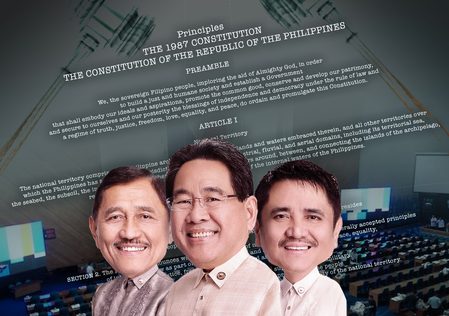

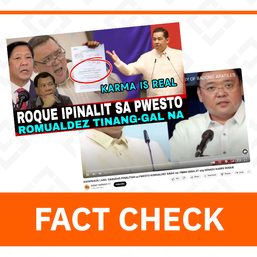
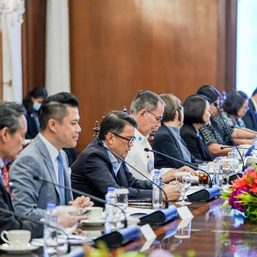
![[OPINION] The First Mode conundrum](https://www.rappler.com/tachyon/2024/03/tl-first-mode-conundrum-03232024.jpg?resize=257%2C257&crop=283px%2C0px%2C720px%2C720px)
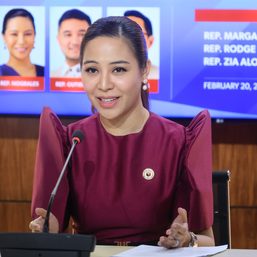
![[In This Economy] Economic charter change is very unpopular – it’s time lawmakers listened](https://www.rappler.com/tachyon/2024/04/in-this-economy-charterchange.jpg?resize=257%2C257&crop=292px%2C0px%2C720px%2C720px)
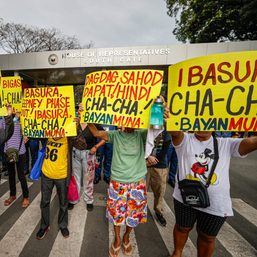
![[ANALYSIS] Understanding the demonization of foreign capital](https://www.rappler.com/tachyon/2024/03/foreign-capital-mar-5-2024.jpg?resize=257%2C257&crop=274px%2C0px%2C720px%2C720px)
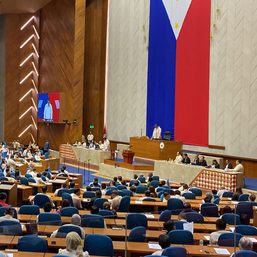
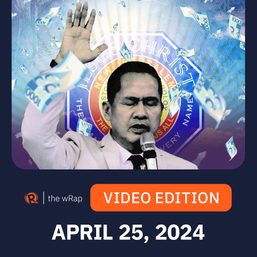
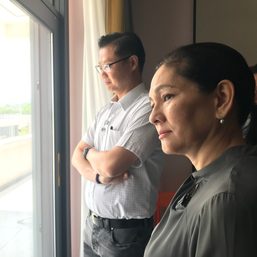


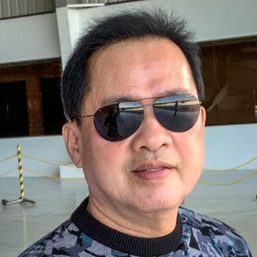
There are no comments yet. Add your comment to start the conversation.